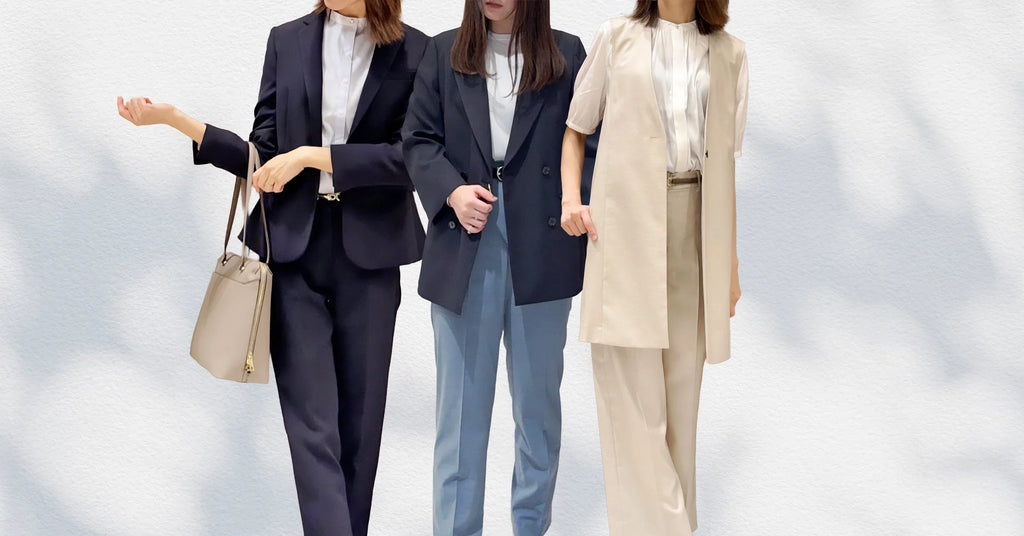Not sure what to wear to a Japanese job interview?
Japanese companies often have their own unique expectations when it comes to interview attire. In this article, we’ll walk you through how to dress appropriately and make a great impression in an interview with a Japanese company.
No Dress Code? Suit Up.

Many Japanese companies require formal business attire for interviews, so wearing a suit is the standard choice.
A tidy and well-groomed appearance is essential for making a strong first impression. Keep the following points in mind when choosing your interview outfit:
- Opt for dark-colored suits such as black, navy, or gray.
- Wear a white or light-colored shirt or a simple blouse under the jacket.
- Choose shoes with closed toes and low to medium heels.
*The product worn by the model has been discontinued and similar products are shown.
Dress Code Says “Casual”? Business Casual is Safe.

If the interview invitation says “casual attire” or “no dress code,” a suit is still a safe option. However, depending on the company culture, business casual may also be appropriate—especially at newer or more international companies.
Office casual means ‘a slightly casual attire’ that doesn’t distract from work, which meets their basic workplace etiquette. The following are basic key points of office casual attire;
- Wear a jacket to look put together.
- Prioritize basic colors and avoid flashy items.
- Shirts and blouses are a safe choice. Choose items that don't expose too much skin when the jacket is removed (e.g., an item that cover your shoulders).
- Bottoms can be pants or skirts. Choosing Skirts that reach the knee or calf length to avoid excessive exposure is a better choice.
Told to Wear “Everyday Clothes”? Show Your Personality—Professionally.

If the interview instructions clearly mention 'personal clothing', in some cases it’s best to avoid wearing a suit. This usually signals a more relaxed interview setting—or a company that wants to see your natural style.
When the company mentions 'personal clothing' it means;
- The company is interested in your personality and sense of style.
- Clothes that are easy to move around in are preferred, as the tour may involve office visits and travel.
- In Creative industries such as fashion, beauty and design, your fashion and hairstyle are considered a form of self-expression.
Navigating dress codes for Japanese interviews can be confusing at first, but understanding the basics will help you leave a strong impression. We hope this guide helps you feel confident and prepared as you take the next step toward your career in Japan.
Wishing you all the best in your job search!




